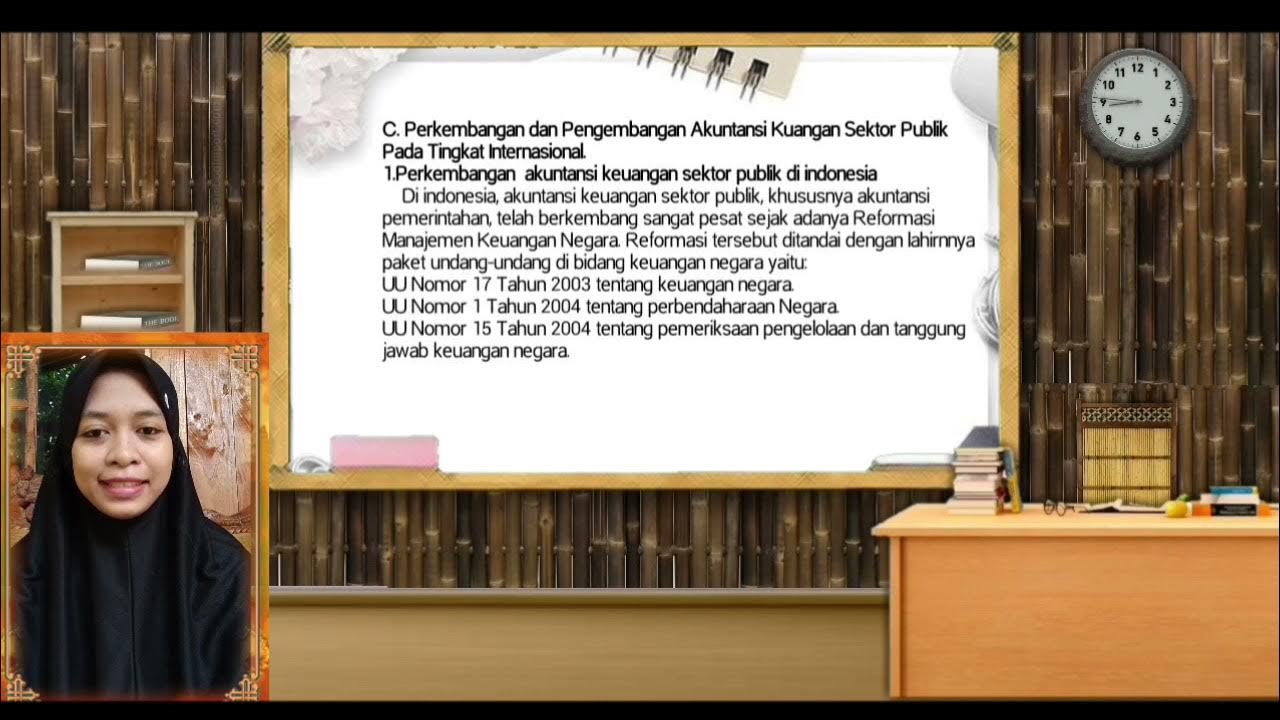Marking 50 years of accounting standard-setting
Summary
TLDRThis video script reflects on the 50-year journey of international accounting standard setting, highlighting the creation of the International Accounting Standards Committee (IASC) in 1973, which evolved into the International Accounting Standards Board (IASB). It details the challenges faced and the success of IFRS Accounting Standards, now adopted by over 140 jurisdictions. Key achievements include international cooperation, reducing capital costs, and aligning global accounting standards. The video emphasizes the ongoing importance of engaging stakeholders and maintaining high-quality, globally accepted standards for financial reporting.
Takeaways
- 📅 The script celebrates 50 years of accounting standard setting, marking a major milestone in global financial reporting.
- 🌍 The International Accounting Standards Committee (IASC) was founded in 1973 to create and promote globally accepted accounting standards.
- 📊 The IASC evolved into the International Accounting Standards Board (IASB), which continues to set high-quality global standards.
- 💼 Initially, the idea of global accounting standards was seen as unrealistic, but consistent efforts led to their widespread adoption.
- 🇪🇺 A significant achievement was when International Financial Reporting Standards (IFRS) became the legal basis for financial reporting across Europe.
- 📈 Today, IFRS standards are accepted in over 140 jurisdictions, reflecting a successful global integration of accounting practices.
- 🤝 International cooperation and the exchange of ideas have been key in developing higher quality and aligned standards worldwide.
- 💡 The endorsement of IFRS by the International Organization of Securities Commissions (IOSCO) in 2000 was a major milestone in global adoption.
- 🔍 IFRS standards focus on making financial information comparable, understandable, relevant, and reliable for stakeholders.
- 📉 The global adoption of IFRS has reduced the cost of capital by minimizing differences in financial reporting, benefiting businesses and investors.
Q & A
What significant milestone has accounting standard setting reached this year?
-Accounting standard setting has reached its 50th anniversary, marking half a century in the journey of transforming financial reporting globally.
Why was the International Accounting Standards Committee (IASC) created in 1973?
-The IASC was created to formulate International Accounting Standards and encourage their worldwide acceptance in response to the need for a global accounting language to aid cross-border trading and investment.
What was the initial skepticism about the possibility of globally accepted accounting standards?
-At the inception of the IASC, nobody believed that globally accepted accounting standards could come true, considering it a pipe dream.
How did the perception change regarding the possibility of international accounting standards?
-The perception changed as IASC worked hard to upgrade the quality of the service, leading people to start recognizing the possibility of globally accepted accounting standards.
What was a significant highlight in the journey towards global accounting standards?
-A significant highlight was when IFRS was assigned to become the European Union's reporting standards, marking a major success.
How has the adoption of IFRS Accounting Standards evolved in the last 50 years?
-IFRS Accounting Standards have become the legal basis in more than 140 jurisdictions around the globe in less than 20 years, indicating an enormous success.
What are some key lessons learned from the globalization journey of accounting standards?
-Key lessons include the understanding that no country has a monopoly on good ideas, and continual engagement and open exchange of ideas help develop higher quality, more closely aligned standards.
What was the role of the International Organization of Securities Commissions (IOSCO) in endorsing IFRS?
-IOSCO's endorsement of IASC's accounting standards in 2000 was a key contributor towards jurisdictions requiring the use of IFRS Accounting Standards.
Why are National Standard Setters considered integral to the adoption of IFRS accounting standards?
-National Standard Setters have become integral in the adoption of IFRS accounting standards and supporting the IASB's goal of developing a single set of high-quality, enforceable global financial reporting standards.
How does the IASB ensure that the standards are reflective of real-world financial practices?
-The IASB engages proactively with the market to understand financial practices, such as credit risk management, and directly with investors to understand their information needs, ensuring the standards are reflective and useful.
What is the impact of convergence between IFRS and national standards or US GAAP?
-The convergence has reduced the cost of capital by minimizing differences in financial reporting, leading to a global adoption of a single set of accounting standards.
What is the board's stance on the future of financial accounting and the importance of maintaining high-quality standards?
-The board emphasizes that financial accounting will always be a core interest to the investor community and stresses the need to be agile, maintain high-quality standards, and engage with stakeholders to keep IFRS accounting standards in high regard.
Outlines

Этот раздел доступен только подписчикам платных тарифов. Пожалуйста, перейдите на платный тариф для доступа.
Перейти на платный тарифMindmap

Этот раздел доступен только подписчикам платных тарифов. Пожалуйста, перейдите на платный тариф для доступа.
Перейти на платный тарифKeywords

Этот раздел доступен только подписчикам платных тарифов. Пожалуйста, перейдите на платный тариф для доступа.
Перейти на платный тарифHighlights

Этот раздел доступен только подписчикам платных тарифов. Пожалуйста, перейдите на платный тариф для доступа.
Перейти на платный тарифTranscripts

Этот раздел доступен только подписчикам платных тарифов. Пожалуйста, перейдите на платный тариф для доступа.
Перейти на платный тарифПосмотреть больше похожих видео

Pemenang Lomba Video Akuntansi APA Fest 2021 - Sejarah Akuntansi Dunia dan Indonesia

Bridge Course in Accounting - Basics of Accounting

Accounting Intermediate - Kieso : Chapter 1 (Financial Reporting & Accounting Standards)

Como o Brasil convergiu para a Contabilidade Internacional

MEMAHAMI 4 STANDAR AKUNTANSI KEUANGAN YANG BERLAKU DI INDONESIA | LAPORAN KEUANGAN | DCONSULTING

Urgensi Pengembangan Akuntansi Keuangan Sektor Publik*
5.0 / 5 (0 votes)
